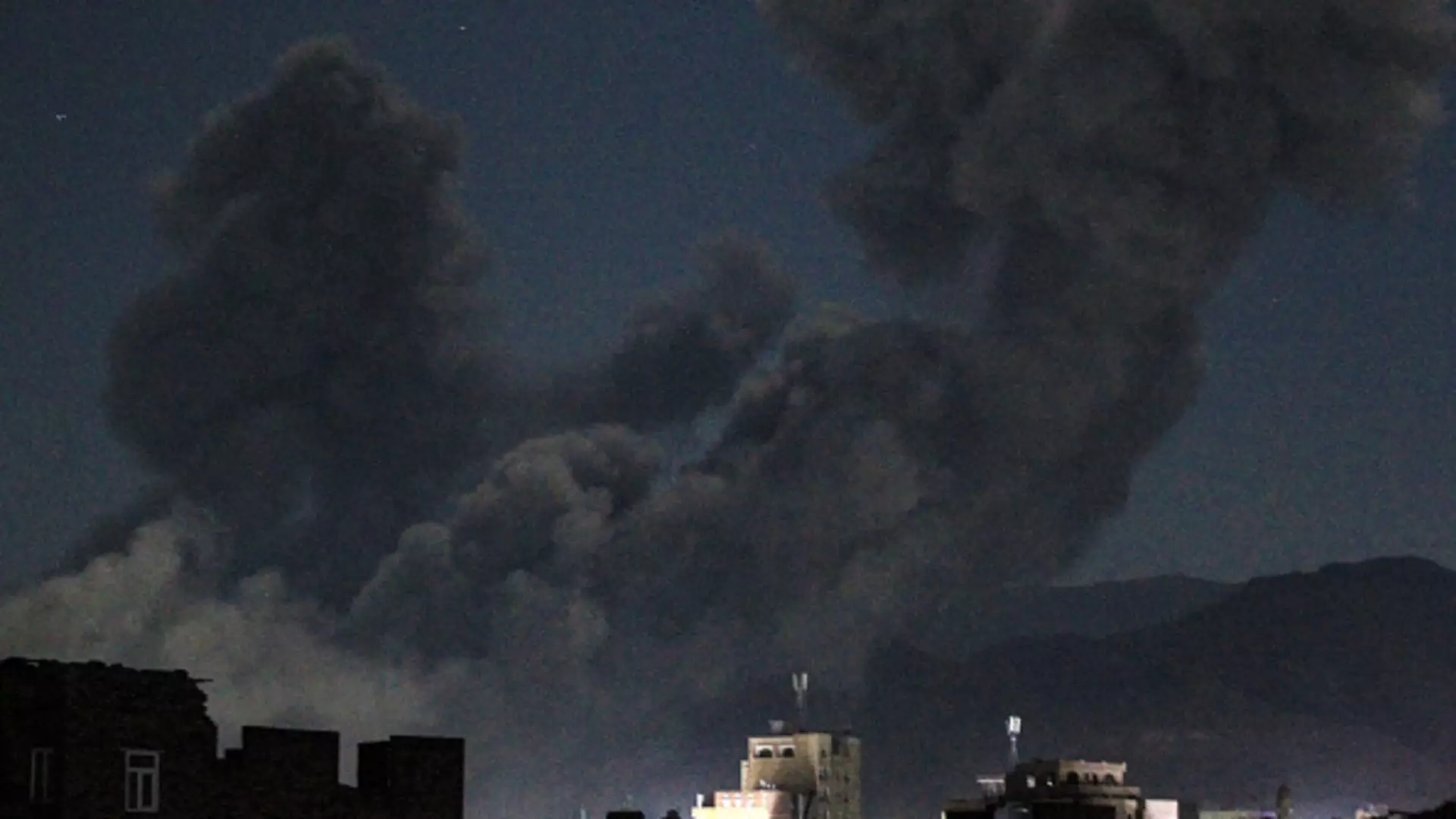On a chaotic Saturday, U.S. President Donald Trump made a provocative decision to launch extensive military strikes against Yemen’s Houthi faction, an armed group aligned with Iran. This sudden escalation, marking the most significant U.S. military maneuver in the Middle East since Trump’s presidency began, resulted in the tragic death of 31 individuals, many of whom were innocent civilians. The attacks have sparked controversies as they violate the principles of international law, presenting a moral and ethical dilemma that transcends politics. Such military actions not only lead to loss of life but also perpetuate ongoing conflicts that destabilize regions further.
The Houthis, in response to these strikes, labeled the actions as war crimes, highlighting the severe implications of military aggression on civilian populations. The situation represents a terrifying intersection of geo-political dynamics and human suffering, leading us to question the efficacy and morality of such military strategies. What are the broader ramifications of a military campaign that purportedly aims at restoring order but, in reality, leads only to chaos and fatalities?
Need for Accountability versus Violating Rights
Trump’s declaration on his Truth Social platform, where he warned the Houthis that their “time is up,” exemplifies the language of aggression that seems to dominate modern military strategy. Instead of fostering dialogue and seeking diplomatic resolutions, the language employed by Trump further polarizes individuals and regions, fueling existing hatred and distrust. The striking numbers—31 lives lost—stand as a testament to the human cost of political rhetoric that leans heavily on military threats rather than constructive dialogue.
Moreover, these actions exemplify a troubling pattern in U.S. foreign policy, where force seems to be the first response rather than the last resort. The demand for Iran to halt its support for the Houthis, backed by a warning of dire consequences, not only demonstrates an authoritarian stance but also falls short of addressing the complex socio-political landscape in Yemen. International relations can no longer afford to be driven purely by might; they require empathy and a commitment to human rights, especially when innocent lives are at stake.
Human Cost and Public Outcry
The voices of the Yemeni civilians are often lost amidst military strategy and geopolitical chess games. The impact of airstrikes ripples through local communities, as recounted by residents like Abdullah Yahia, who described the terrifying experience of explosions that rattled their homes. The atrocities of war dismiss the basic human rights of those caught in the crossfire. Civilians suffer the brunt of conflicts, and each loss of life is a reminder that our policies must weigh human costs alongside strategic gains.
The historical context of the Yemen conflict has provided fertile ground for external interventions that exacerbate the humanitarian crisis. Conditions in Yemen have already seen tremendous suffering due to protracted conflict, economic hardships, and the ongoing humanitarian crisis. Yet, in times of crises, military interventions tend to compound existing wounds rather than heal them. In aiming to address threats, we must not overlook the plight of innocents whose lives become collateral damage in the unstoppable machinery of war.
The Broader Implications of Military Aggression
Beyond logistical challenges, the U.S. military campaign in Yemen signals a dangerous precedent for future interventions. The rhetoric surrounding these strikes has drawn sharp rebuke from Iran, with officials asserting that they will respond decisively to any threats made against them. By engaging in direct military confrontations, the U.S. risks not only regional instability but also the potential for wider escalations as alliances and enmities deepen in a profoundly complex geopolitical landscape.
This moment is indicative of a broader strategy that prioritizes force over diplomacy. Trump’s letter to Iran’s Supreme Leader, seeking negotiations over Iran’s nuclear program, brings to light the conflicting dualities present in U.S. policy. It raises the question of how a nation can purport to seek peace while simultaneously unleashing military action that undermines any serious attempt at dialogue. The prevalent philosophy seems to advocate for containment and threat rather than a genuine commitment to conflict resolution.
In a world that demands solutions rooted in dialogue and equity, the actions taken against the Houthis risk perpetuating cycles of violence rather than breaking them. The narrative surrounding these military strikes should be challenged, and a call for ethical responsibility should take precedence. Understanding the history and context of the issues at hand must guide U.S. policies to forge a more peaceful path forward.


Leave a Reply